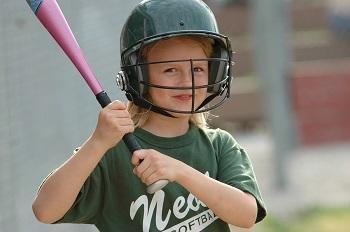 Even though you try as hard as possible to keep your child safe while they are playing sports, accidents still happen. At these moments, it’s important that you know whether these are injuries that can easily be treated from the comfort of your own home or whether you need to turn to a pediatrician for proper medical attention.
Even though you try as hard as possible to keep your child safe while they are playing sports, accidents still happen. At these moments, it’s important that you know whether these are injuries that can easily be treated from the comfort of your own home or whether you need to turn to a pediatrician for proper medical attention.
Pediatricians have seen a lot of sports-related injuries over the years and while we also focus as much of our attention on prevention, we know the importance of being able to get immediate and comprehensive care when your child does sustain an injury.
Common sports-related injuries include:
- Dislocations (particularly in the shoulder)
- Traumatic injuries (this includes cuts, sprains and strains, and broken bones)
- Stress fractures
- Tendinitis (often in the hand or wrist)
- Concussion
When a dislocation happens many times it is accompanied by an audible popping sound at the moment that the injury occurred. This unnerving sound is often followed by sudden and intense pain. It’s important that you turn to a pediatrician who can put the shoulder or any other area of the body back in place. The joints of a child’s body are looser than adults, so it makes shoulders and other areas more prone to dislocations.
Minor cuts, sprains, and strains can often be handled with at-home care. In most cases, the RICE method is a great way to ensure that your child gets the rest they need to heal properly and to stay off of the injury until it fully heals. Icing and elevating the injured area can also reduce pain and swelling. Of course, if you suspect that your child has a broken bone, this will need to be evaluated by a medical professional right away.
Children who are serious or long-term athletes are more likely to experience overuse injuries. These injuries occur over time rather than suddenly and they are often the result of performing repetitive movements. Overuse injuries include stress fractures and tendinitis. If your child feels pain whenever they move a certain area of the body or if they notice pain or swelling in a certain area it’s important that they get checked out.
Wearing a helmet is crucial for protecting your child’s head while playing sports. Of course, if your child has received a blow to the head and is experiencing dizziness, fatigue, frequent or severe headaches or just seems out of sorts it’s crucial that you bring them in right away to see if they’ve incurred a concussion.
When in doubt, pick up the phone and talk to a pediatrician about your child’s injuries and symptoms. They will be able to determine whether or not they should come in for proper care.








